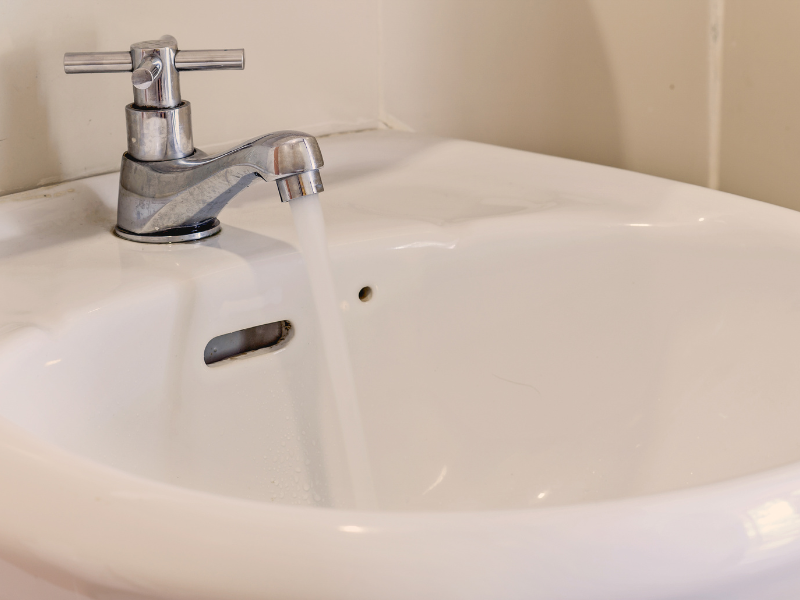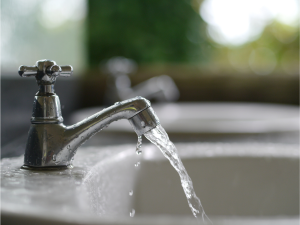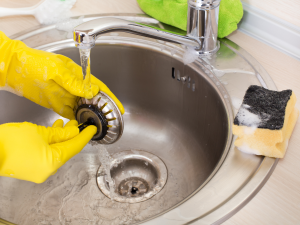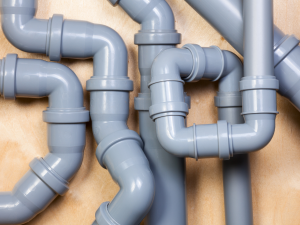When it comes to odd water problems, few of them can be as nasty as having reddish-brown water flowing out of your taps. More often than not, this water can even smell bad, typically carrying a metallic scent along with its odd coloring.
To many people, rusty water can be quite upsetting, especially if it happens suddenly and without a clear reason why. The good news is, though, that said water isn’t harmful to you at all.
That doesn’t mean that you should let it go unfixed though. While it can be a relatively small issue at first glance, dealing with rusty, reddish-brown water can often be a sign of serious plumbing issues. Typically, the water lets you know that you need to get your plumbing checked out as soon as possible, for the structural integrity of your home as well as your family’s safety.
To help out, we’ve put together this article on the various causes of rust-colored water and what you can do to fix the issue. If you need help replacing any part of the plumbing system or need a professional to do a service check, our team at Clover Contracting is ready to help whenever you need us!
What Causes Rusty Brown Water?
In most cases, rusty water isn’t deadly when used in your daily life. Even though the brown color – and any odd smells that can come with it – can be off-putting, the water itself can still be used, given that it’s in moderation, of course! With that said, though, finding out whether any of these causes is what’s affecting your own home’s water supply is highly important.
Your Faucets May Be Damaged
Like many parts of your plumbing and the rest of your home, your faucets are typically made out of some kind of metal alloy in addition to any plastic parts. This fact when combined with the fact that faucets see the most amount of water and are almost always damp, leads to the faucets frequently getting damaged.
If you’re noticing rusty water from faucets around your home, make sure to check the state of each faucet. The faucet can get rusty, causing bits of it to come off and mix with the water flowing through it.
Your Source of Water Is From a Well
Another common reason that you’re getting rusty water from your faucets is the source of the water itself. If you know that the water’s sourced from a well close to your home, make sure to check the mineral and metal contents of the soil around the well – if you have access to it.
Often, well water turns rusty due to the iron content in the ground. Though it’s often too low to change the color of the water, any recent renovations or even a change in the environment itself can cause the iron content to shoot up. With a higher level of iron in the ground, the water leaches some of it, turning that unappealing reddish brown instead of its usual near crystal clearness.
Your Water Heater Is Deteriorating
If you’ve lived in the same house for quite some time and you’ve never seen rust-colored water from your faucet until recently, the most likely cause could be the water heater you have. Much like the faucets in your home, water heaters are bound to rust. Though more specific to the traditional tank water heaters, rusty water from water heater units are more common when the system gets much closer to when it needs to be replaced.
The Home’s Pipes Are Wearing Down
In addition to the possibility that your home’s tank water heater is the main cause of the rusty water you’re getting, it’s a good idea to check the quality of the pipes themselves. This is especially true if you own a tankless water heater or recently replaced the existing one.
Since the water supply pipes are the most exposed to water and air, rust is far more likely to be found there. However, due to how long the pipes need to be to provide water to the entire home, finding the specific pipe that’s causing the rust brown water can be difficult. In many cases, the best choice is to call a technician or a plumbing specialist for help narrow down where the damaged pipe is.
The Water Is a Municipal Issue
Lastly, if none of the mentioned reasons are why you’re dealing with rusty-colored water, the only other possible cause is the water itself. Often, bacteria – more specifically, iron-reducing bacteria – can color the water a rusty brown. However, if the water supply doesn’t show that, the only cause is in the municipal water supply.
At this point, the only solution is to call your city’s water treatment plant for help. More often than not, these issues can be caused by damage or a system-wide malfunction, so bringing up the issue to your local representative is the best way to address the issue.
How to Fix Rusty Water Coming From Your Faucets
Fortunately, fixing the rusty brown water is much easier than most plumbing problems, though it does depend on the temperature of the water. Rusty hot water is often a clear sign that something is wrong with your water heater. On the other hand, rusty cold water – and only cold water is more of a pipe-related issue.
Both Hot and Cold Water Are Rusty
When both your hot and cold water is brown, make sure to call your local water supply company. Since the brown water isn’t influenced by the temperature of the water, the most likely cause is an issue with a public water main or a nearby fire hydrant.
Only the Cold Water Is Rusty
As mentioned, the most likely cause of cold rusty water is your pipes wearing down due to actual rust. When the water flows through the corroded pipe, bits of rust flake off and mix with it to give the water a brown color. However, it’s important to let the water run for a few minutes to check.
If the water runs clear soon after, the rust in the pipes isn’t all that major, and turning on your faucet only dislodged a few bits of rust that formed. Your pipes are still in workable condition but should be checked again professionally in a few weeks or months.
Takeaway
Rusty water is a surprisingly common occurrence when it comes to your home’s plumbing systems. Though the water’s change in color can be shocking, the main cause behind it is just rust.
Calling a professional from our team at Clover Contracting can help you narrow down its cause and fix it before it becomes worse.




